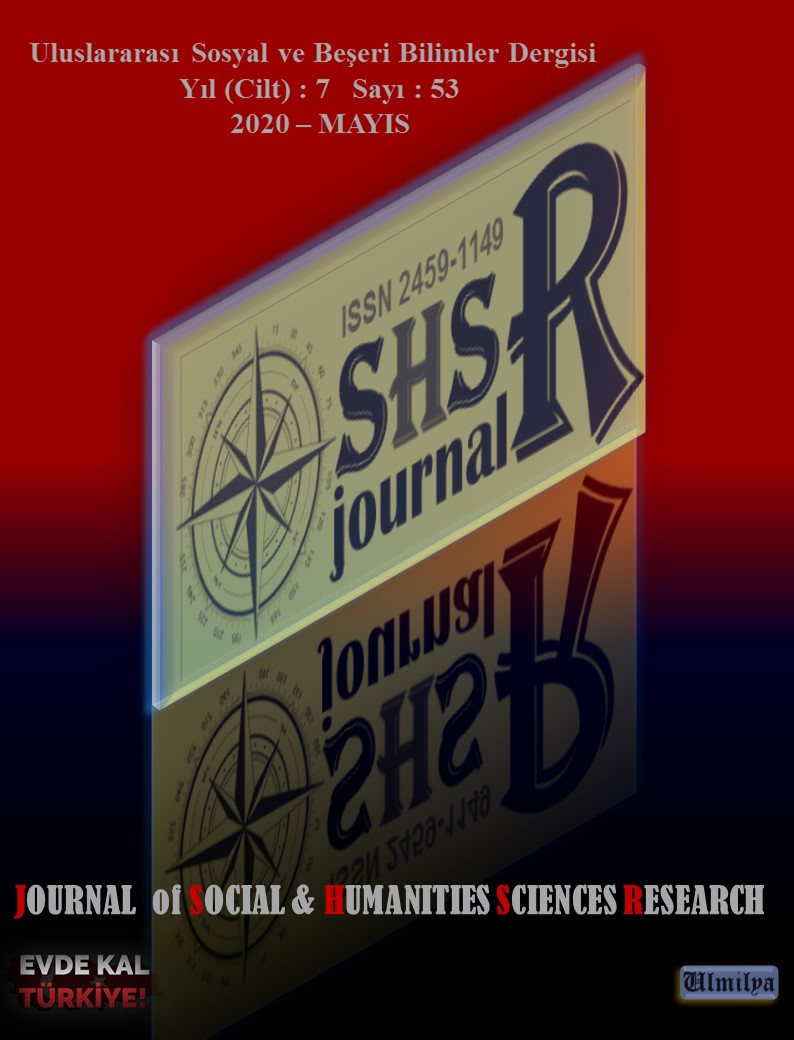THE TRANSFORMATION PROCESS OF SOCIETY TO QUARANTINE AND THE SOCIAL SUPPORT OF THE LOCAL MUNICIPAL AUTHORITIES IN THIS PROCESS: AN EXAMPLE FROM THE PROVINCE OF BURSA
DOI:
https://doi.org/10.26450/jshsr.1860Keywords:
Quarantine society, social isolation, social support, municipalityAbstract
The global and local spread of the COVID-19 infection since December 2019 has led to both death and disease, causing socio-economic damage to societies and deteriorations in individual mental health. The management and regulations made by the state in the individual and community precautions taken are thought to be effective to be able to slow down and terminate the pandemic. The preventative measure which is thought to have been most effective to date is quarantine. This disease outbreak, which has been labelled the greatest social crisis of the last 50 years has brought a new appearance to society, which has been called “quarantine society”.
The aim of this study was to examine the roles undertaken in the intervention against the epidemic by the Local Council Authorities of Osmangazi, Yildirim, and Nilüfer in the city of Bursa, the initiatives are taken, and the aid and support are given to society. The evaluation was also made of the precautions and recommendations related to workplaces, prepared by the Ministry of Family, Work and Social Services, and considered by the Bursa Chamber of Commerce and Industry to be of guidance for firms in the intervention against the virus.
The data obtained in the study demonstrated that in the quarantine process direct initiatives were used by the Local Authorities in various support measures to meet the social, cultural, economic and academic needs of the city residents, which emerged because of the epidemic.
Downloads
Published
How to Cite
Issue
Section
License
Copyright (c) 2020 INTERNATIONAL JOURNAL OF SOCIAL HUMANITIES SCIENCES RESEARCH

This work is licensed under a Creative Commons Attribution 4.0 International License.


